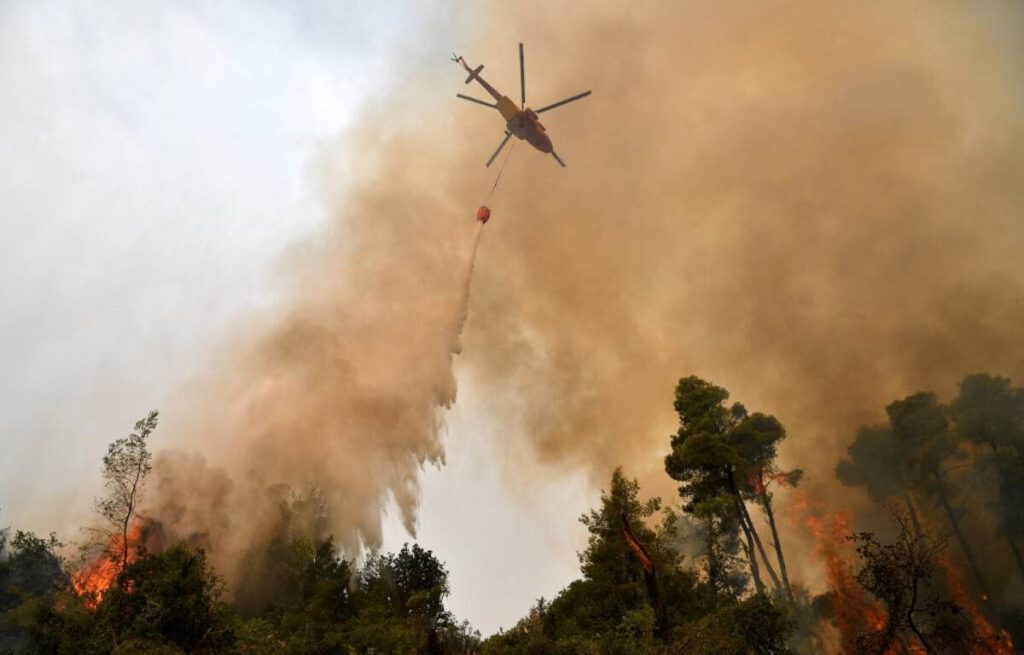
The summer of 2021 was the hottest ever in Europe, according to Copernicus
Remember that mercury has risenIt reaches 47.4 °C on August 14, in Montoro, In southern Spain, breaking the absolute national temperature record. A few days ago, the inhabitants of Sicily were even hotter with a temperature recorded of 48.8 degrees Celsius, making it the record. Inevitably, this heatwave was expected to emerge from the State of the Global Climate in 2021 report published on Friday. Copernicus Climate Change Service (C3S)European Earth Observation System. This is the fifth edition of this report that Copernicus published every spring, on the occasion of Earth Day, always focusing in detail on Europe.
“The past seven years have been the hottest ever”
An exercise that allows us to understand the reality of climate change. “The past seven years have been the hottest ever, Copernicus asserts on Friday. 2021 is no exception to the rule, even if it ranks “between fifth and seventh” among the past seven years, as Copernicus identifies.
In other words, for Europe, 2021 was a mixed year. Overall, surface temperatures were only 0.2°C higher than the 1991-2020 average, “so 2021 is not among the 10 warmest years ever in Europe,” the report notes. Spring was cooler than average. It did, however, start going strong, at the end of March, with temperatures soaring at this time of year, before suddenly giving wayto the late bouts of frost that affected agriculture in several parts of the continent. Especially in France.
Standard summer in Europe
The summer that followed was the hottest ever. Copernicus identifies “one degree higher than the average of the past thirty years”, who then recalls intense and prolonged heat waves (up to three weeks), which Touched the edge of the Mediterranean. Especially Turkey, Greece and Italy. Drought conditions have led to many devastating wildfires. The report recalls that “the area where the smoke broke out completely, between July and August, in the Mediterranean region of Europe, exceeded 800,000 hectares.” Enough to make it one of the most intense seasons, on the fire front, in thirty years in the region. Another sign of this particularly hot summer, Copernicus also recorded surface temperatures of 5°C above average at various places in the Baltic Sea.
The Arctic is particularly affected by climate change, and it is also an area that Copernicus watches closely. Temperatures in 2021 were cooler there than the year before, but 2020 was marked by abnormally high temperatures in the region, as it should be noted. All the same, last year, linked to carbon dioxide emissions Forest fires in the Arctic, particularly in eastern SiberiaIt was the fourth largest company since it was registered. This is 2003. Sea ice has also reached its 12th lowest level since satellite records began in 1979, according to the report. And for Greenland sea ice, it was somewhat the lowest ever recorded.
Continuous rise in carbon dioxide and methane concentrations
Ultimately, global warming continued into 2021, even though the year was among the warmest in the past seven years. Copernicus invites us to have no illusions about this and to take a step back to make it better. “There is a clear global increase in surface temperatures, both on land and at sea, compared to pre-industrial levels,” the report said. These increased from 1.1 to 1.2 °C. »
The same observation of sea level, which has risen by 9 cm since 1993, or the ice caps of Greenland and Antarctica. “The latest consolidated data show, until the end of 2020, that they continued to lose mass,” Copernicus recalls. This is not about to change? In 2021, however, global concentrations of carbon dioxide and methane, two powerful greenhouse gases, continued to increase, particularly methane, and Copernicus still reports based on its estimates made from these data. Satellite.

“Unapologetic pop culture trailblazer. Freelance troublemaker. Food guru. Alcohol fanatic. Gamer. Explorer. Thinker.”
